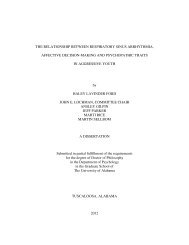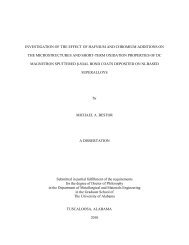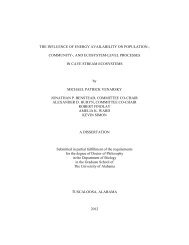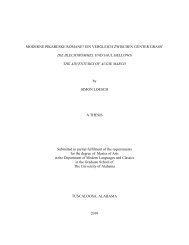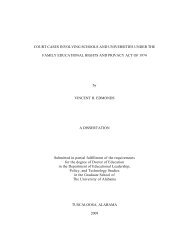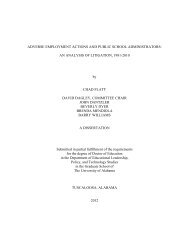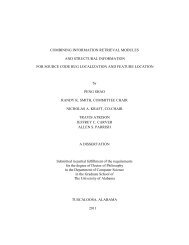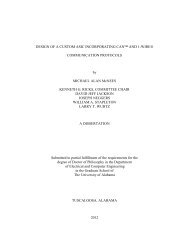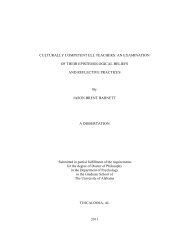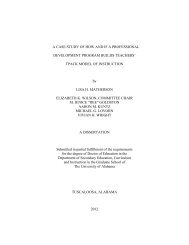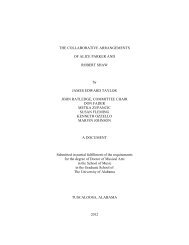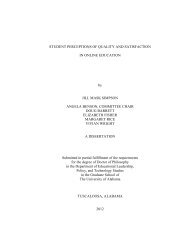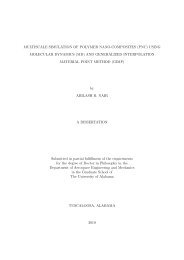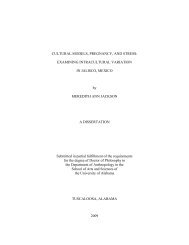Copyright Malvin Porter, Jr. 2010 - acumen - The University of ...
Copyright Malvin Porter, Jr. 2010 - acumen - The University of ...
Copyright Malvin Porter, Jr. 2010 - acumen - The University of ...
You also want an ePaper? Increase the reach of your titles
YUMPU automatically turns print PDFs into web optimized ePapers that Google loves.
Wardrop, 2001). It is important to identify children who are victims <strong>of</strong> peer aggression and those<br />
who engage in bully behavior in order to understand how they reason about this form <strong>of</strong><br />
aggression. Social learning research shows that development can be altered by early exposure to<br />
aggression, thus, increasing the likelihood that child will have greater access to aggressive<br />
behavioral responses. Previous studies found that children acquire knowledge <strong>of</strong> novel<br />
aggressive behavior by observing aggressive models and emulating effective strategies with<br />
positive consequences for aggressing (Bandura, 1973, 1977, 1983; Melz<strong>of</strong>f & Moore, 1977).<br />
Aggressive models teach general constructs (e.g., scripts, schemas, strategies, likely<br />
consequences) for aggressing (Collins, 1982; Huesmann, 1988; Rule & Ferguson, 1986; Shank<br />
& Ableson, 1977). Aggressors learn to consider positive cost/benefit ratios <strong>of</strong> aggression (e.g.,<br />
peer approval, goal attainment, gain dominance; legal punishment, parental disapproval) that<br />
generate positive thinking about aggressive acts (Becker, 1974; Clarke & Cornish, 1983; Crick &<br />
Dodge, 1994). One implication is that by teaching children prosocial social skills and coping<br />
strategies they will learn to more frequently engage prosocial assessments <strong>of</strong> behavior in the<br />
context <strong>of</strong> bully victimization.<br />
Research has found that assisting children who are victims <strong>of</strong> aggression to develop<br />
coping strategies had a positive effect on social adjustment (Kochenderfer Ladd & Skinner,<br />
2002). For example, girls benefit from garnering appropriate social support. Boys benefit from<br />
enhancing appropriate problem-solving and conflict resolution skills. Boys benefit by ways to<br />
enhance their social support skills in severe situations that are outside their control, such as peer<br />
abuse. Additionally, children benefit by developing coping strategies that moderate their<br />
emotional responses to peer aggression, such as fear, embarrassment and anger (Kochenderfer-<br />
Ladd, 2004; Kochenderfer Ladd & Pelletier, 2008).<br />
48



